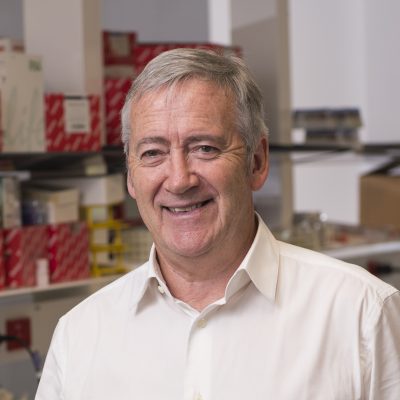Regulation of Interferon and Innate Signalling

Macrophage and bacteria
Overview
The Regulation of Interferon and Innate Signalling Research group continues to focus on understanding the molecular regulation of immune responses to infection, inflammation, and cancer, which requires a systems approach.
The interferon (IFN) family of cytokines, which is a key regulator of immunity, is central to these processes. IFNs are produced in response to pathogen recognition by toll-like receptors (TLRs) and other receptors of ‘danger’ signals activated by infection or other cell death signals.
IFNs protect cells from viral infection, activate all effector cells of the immune response and can inhibit tumour cell growth. However, in certain situations, IFNs can be pro-inflammatory and have dose-limiting toxicity as therapies for viral infections and other clinical conditions, which can lead to autoimmune disease. Therefore, an understanding of IFN regulation, how and why IFNs are produced in different circumstances, how IFNs signal differently in different cells, and the discovery of mechanisms to regulate these effects selectively, are vital.
TLRs and IFNs use well-characterised signal transduction pathways such as NF-κB, IRF and STATs. However, there are other relatively uncharacterised transcription factor pathways such as the ETS factors, which scientists and students in the team are currently characterising. Furthermore, since cytokines do not act in isolation, scientists in the Regulation of Interferon and Innate Signalling group is interested in the cytokine environment in which IFNs and other factors operate.
Diseases we research
Research Group Head | Professor Paul Hertzog
Ovarian cancer is the tenth most common cancer in Australia, and a silent killer. My research focuses on our discovery of IFNε as a very effective natural tumour suppressor in ovarian cancer, with the aim of developing new therapeutics that can reverse that process and improve survival rates.

Meet the team

 Dr Nicole de Weerd
Senior Research Scientist
Dr Nicole de Weerd
Senior Research Scientist
 Dr Edward Giles
Senior Research Scientist
Dr Edward Giles
Senior Research Scientist
 Dr Natália Sampaio
Research Scientist
Dr Natália Sampaio
Research Scientist
 Dr Nicole Campbell
Postdoctoral Scientist
Dr Nicole Campbell
Postdoctoral Scientist
 Dr Eva Chan
Postdoctoral Scientist
Dr Eva Chan
Postdoctoral Scientist
 Dr Hani Hosseini Far
Postdoctoral Scientist
Dr Hani Hosseini Far
Postdoctoral Scientist
 Jack Hertzog
Research Support Staff
Jack Hertzog
Research Support Staff
 Antony Matthews
Research Support Staff
Antony Matthews
Research Support Staff
 Georgie Wray-McCann
Research Support Staff
Georgie Wray-McCann
Research Support Staff
 Jasmine Chuah
PhD Student
Jasmine Chuah
PhD Student
 Sofia Maceratessi
PhD Student
Sofia Maceratessi
PhD Student
 Dr Mustapha Si-Tahar
Visiting Scholar
Dr Mustapha Si-Tahar
Visiting Scholar
News from the lab
Publication highlights

